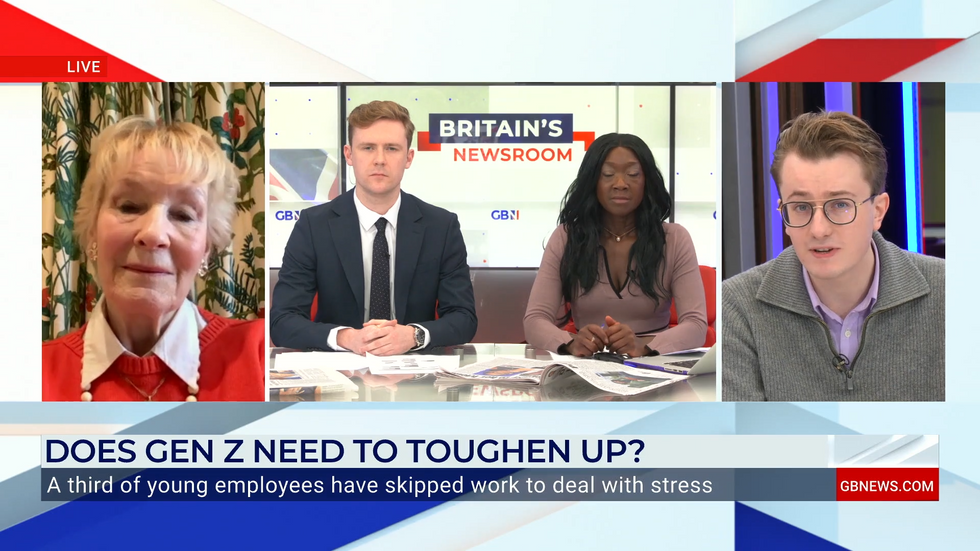Christine Hamilton has sparked controversy on GB News by telling young workers they need to “toughen up” in response to new figures about workplace stress.
The media personality criticised younger generations for “stressing about their social media profiles” rather than “buckling down and getting on with the job”.
“The qualities that make this country great and free is self-sacrifice, self-reliance, hard work and community spirit, not me, me, me,” Hamilton told GB News viewers.
She blamed schools for telling children “you’re all winners”, suggesting this mentality “filters through the generations”.

Christine Hamilton clashed with Maxwell Marlow
GB NEWS
A new survey by Mental Health UK has revealed that 35 per cent of workers aged 18-24 took time off due to stress last year.
This stands in stark contrast to older age groups, with just one in 10 workers aged over 55 needing stress-related leave.
LATEST DEVELOPMENTS

Young people are increasingly taking days off at work due to burnout
GETTY
The charity’s annual Burnout Report found stress leave among 25-34 year olds increased from 23 to 29 per cent over the past year.
Meanwhile, the proportion of older workers taking stress leave decreased, falling from 18 to 14 per cent among those aged 45-54.
Young workers reported feeling stressed due to regularly working unpaid overtime, with 48 per cent of 18-24 year olds citing this as a factor.
Another 46 per cent said they were taking on extra hours to cope with the increased cost of living.

You can watch the full GB News debate above
GB NEWS
For those aged 25-34, high workload was the primary concern, affecting 56 per cent of respondents.
The survey also revealed a sharp decline in young people’s willingness to discuss workplace pressure, with only 56 per cent of 18-24 year olds feeling comfortable speaking to managers, down from 75 per cent last year.
Maxwell Marlow from the Adam Smith Institute challenged Hamilton’s view, pointing to economic data showing young people face significant financial pressures.
“The price of rent has increased 67 per cent while wages have only increased eight per cent” since 2008, Marlow noted.
“Young people are having to work harder and harder to keep a roof over their heads and they’re going to have to keep working for little pay,” he said.
“I think we need to take not sympathy, but understand where young people are coming from.”
Brian Dow, chief executive of Mental Health UK, warned that “many organisations still offer 20th-century mental health support for a 21st-century workforce”.
He called for employers to “rebuild bridges and open up conversations” between generations about workplace expectations.
“We’re calling on employers to reconsider the approach to mental health and explore reasonable adjustments and workplace wellbeing initiatives in collaboration with their young employees,” Dow said.
He warned companies risk losing young talent if they fail to adapt their approach.